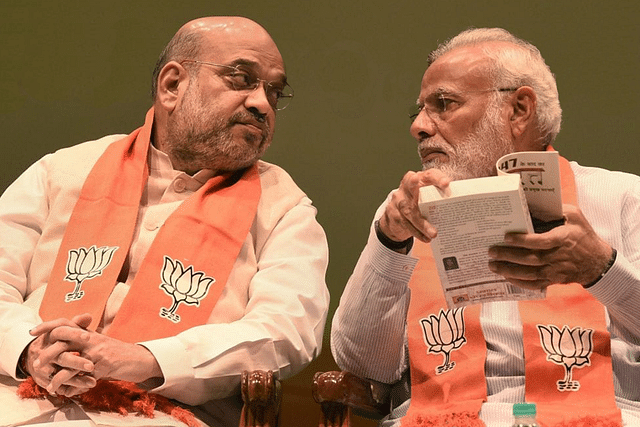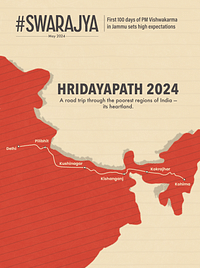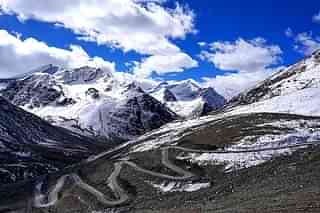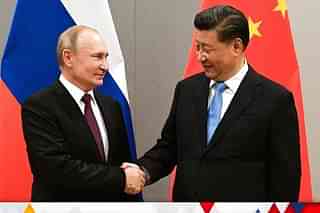Politics
Why The BJP Failed To Dislodge Didi
R Jagannathan
May 02, 2021, 01:25 PM | Updated 01:25 PM IST
Save & read from anywhere!
Bookmark stories for easy access on any device or the Swarajya app.

The Trinamool Congress’s thumping victory in West Bengal will be widely seen as a big defeat for the BJP, which poured all its resources into the state, with some expectation that it may actually dethrone Mamata Banerjee. That it could not do so should be considered a blessing, for it can fight harder and more differently the next time. A success it did not deserve and was not ready for is not worth having.
Here is why it failed to dislodge Didi.
One, it has no local face or leader. Its campaign was basically anti-Mamata Banerjee, which is negative. By smartly making this election about “outsiders” versus Banglar meye (Bengal’s daughter), she painted herself as the target of outsiders, which would have got her both the women’s vote and some degree of the “Bengali pride” vote. Regional pride (asmita) was what helped Narendra Modi retain power repeatedly in Gujarat. Mamata had no challenger except the BJP’s resources and national leaders. By 2026, this is what the BJP must fix first.
Two, the message matters. The BJP had no clear agenda for Bengal beyond empty slogans like “Sonar Bangla”, etc. Mamata Banerjee did the small things right, especially her welfare schemes to benefit women, just as Modi did at the national level with Ujjwala, Jan Dhan, etc. If we take the benefits already received, and given that the women’s vote tends to get undercounted in pre-poll surveys, clearly the BJP did not have anything substantial to offer to the silent part of the electorate.
Three, it failed to create a winning voter coalition. The BJP failed to ensure a Hindu consolidation even though the Trinamool managed to consolidate the minority vote. This is why the Congress and Left have been left high and dry. Their minority vote simply went to the TMC, as Muslims voted tactically, while the urban Hindu vote did not. It split and helped Didi.
Contrast this with how Himanta Biswa Sarma managed a substantial consolidation of the Assamese and Bengali Hindu votes in Upper and Lower Assam, apart from consolidating the vote of what the Left calls sub-altern castes and groups. The BJP needs to ask itself how it failed in West Bengal, where it had no anti-incumbency, when Sarma managed to overcome that handicap and still win a big mandate by using the spectre of Badruddin Ajmal becoming the new power centre in the state. The BJP’s strategists need to consider why this did not happen in West Bengal.
The BJP has a choice to make: it can become a truly Hindu party that offers the minorities a decent deal or risk falling between the identity and secular stools. Sarma’s victory tells us why you can’t ride both horses at the same time. You can have Sabka Saath, Sabka Vikas, but Sabka Vishwas has to be preceded by at least the vishwas of your core voter. This it failed to do in West Bengal.
On the plus side, the BJP should be happy that it did not win and be stuck with the winner’s curse. It is now occupying the entire opposition space, and has time to build its cadre and local leadership, and finetune its political messaging.
In the short run it should worry about the possibility of violence in Bengal, where a victorious Trinamool Congress may seek to re-assert its street power, especially with the party’s cadre who shifted to the BJP before the elections.
If Didi’s massive sweep results in her playing a national role, this will be to the BJP’s advantage. Just as Narendra Modi’s national appeal did not work in Bengal, her regional strength will not play out at the national level.
But the BJP has a lot of soul-searching to do. It has to build a leader, a stronger Hindu narrative, and a stronger cadre base.
Save & read from anywhere!
Bookmark stories for easy access on any device or the Swarajya app.
Jagannathan is Editorial Director, Swarajya. He tweets at @TheJaggi.
Support Swarajya's 50 Ground Reports Project & Sponsor A Story
Every general election Swarajya does a 50 ground reports project.
Aimed only at serious readers and those who appreciate the nuances of political undercurrents, the project provides a sense of India's electoral landscape. As you know, these reports are produced after considerable investment of travel, time and effort on the ground.
This time too we've kicked off the project in style and have covered over 30 constituencies already. If you're someone who appreciates such work and have enjoyed our coverage please consider sponsoring a ground report for just Rs 2999 to Rs 19,999 - it goes a long way in helping us produce more quality reportage.
You can also back this project by becoming a subscriber for as little as Rs 999 - so do click on this links and choose a plan that suits you and back us.
Click below to contribute.





